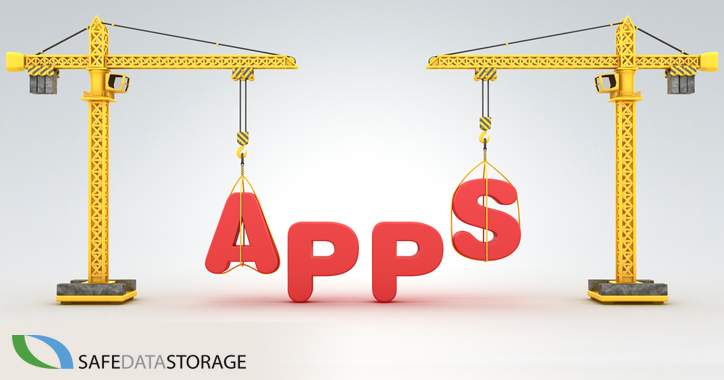Should my business use G Suite or Office 365?
Active backup for Office 365. Safe Data Storage. Automated, agentless. Free restoration. Cloud storage. Safe and secure. Encrypted.
There has been a considerable shift to Software-as-a-service (SaaS) platforms over the past few years – with most major companies embracing this technology and realising the benefits. Even small businesses have begun to adopt this approach – as they realise that it can help them to compete with the ‘big boys’.
What is G Suite?
G Suite is Google’s cloud-based collaborative working platform. It consist of numerous separate (but often linked) apps all aimed at enhancing collaborative working.
What are the main features?
Gmail
Google’s flagship email program – allows you to have business email accounts with up to 30 email aliases per user. The email also works on Gmail apps for mobile devices. If you prefer a desktop client then you can use popular clients like Thunderbird, or even Outlook.
Google Drive
Google Drive allows users to store and manage files. The app can be downloaded onto mobile devices, tablets, or desktop enabling simple access to files stored in the Drive. It also makes sharing files super easy. You can assign viewing/editing rights to colleagues.
Collaboration tools in G Suite
G Suite’s other collaboration tools include Hangouts (video conferencing and text messaging), Google Calendar and Google Keep (for to-do lists, events, and timelines), and several others.
Cost
G Suite has three pricing plans:
Basic – £4.14/user per month with 30GB cloud storage.
Business – £8.28/user per month.
Enterprise – £20/user per month.
NB: For Business/Enterprise plans, there is a 1TB storage limit per user unless you have more than 5 users – in which case there is no limit.
What is Office 365?
Office 365 is Microsoft’s collaborative cloud-based offering, consisting of many great features as well as classic Microsoft programs like Word, Excel, and Outlook.
What are the main features?
Outlook for Business
Microsoft’s email program allows for branded email addresses and up to 400 aliases per user. Outlook has a full-featured desktop email client, web version, and mobile apps. Office 365 email address can also be used with other mail clients.
OneDrive Cloud Storage
Office 365’s main storage solution, files can be stored and managed/shared. There are desktop, mobile, and web versions available.
Office 365 collaboration tools
Office 365 allows multiple people to work on the same file simultaneously – boosting collaboration/teamwork. It also has Skype for messaging and video calls.
Having an active backup for Office 365 provides protection of safe data storage and an on-premises backup solution that enables a point in time restore should the worst happen.
Cost
For small businesses
Business Essentials = £3.80/user/month (annual commitment)
Office 365 Business = £7.90/user/month (annual commitment)
Business Premium = £9.40 user/month (annual commitment)
For larger businesses
ProPlus = £11.50/user/month (annual commitment)
Enterprise E1 = £6.00/user/month (annual commitment)]
Enterprise E3 = £17.60/user/month (annual commitment)
Enterprise E5 = £30.80/user/month (annual commitment)
Conclusion
Both platforms are great for productivity, collaboration, storage and more. Both can be used across multiple devices.
For smaller businesses, G Suite probably edges it thanks to its pricing, ease-of-use, and easier admin control.
For larger organisations where most (if not all) employees are office-based and use Windows desktop computers, Office 365 is probably the best solution.
